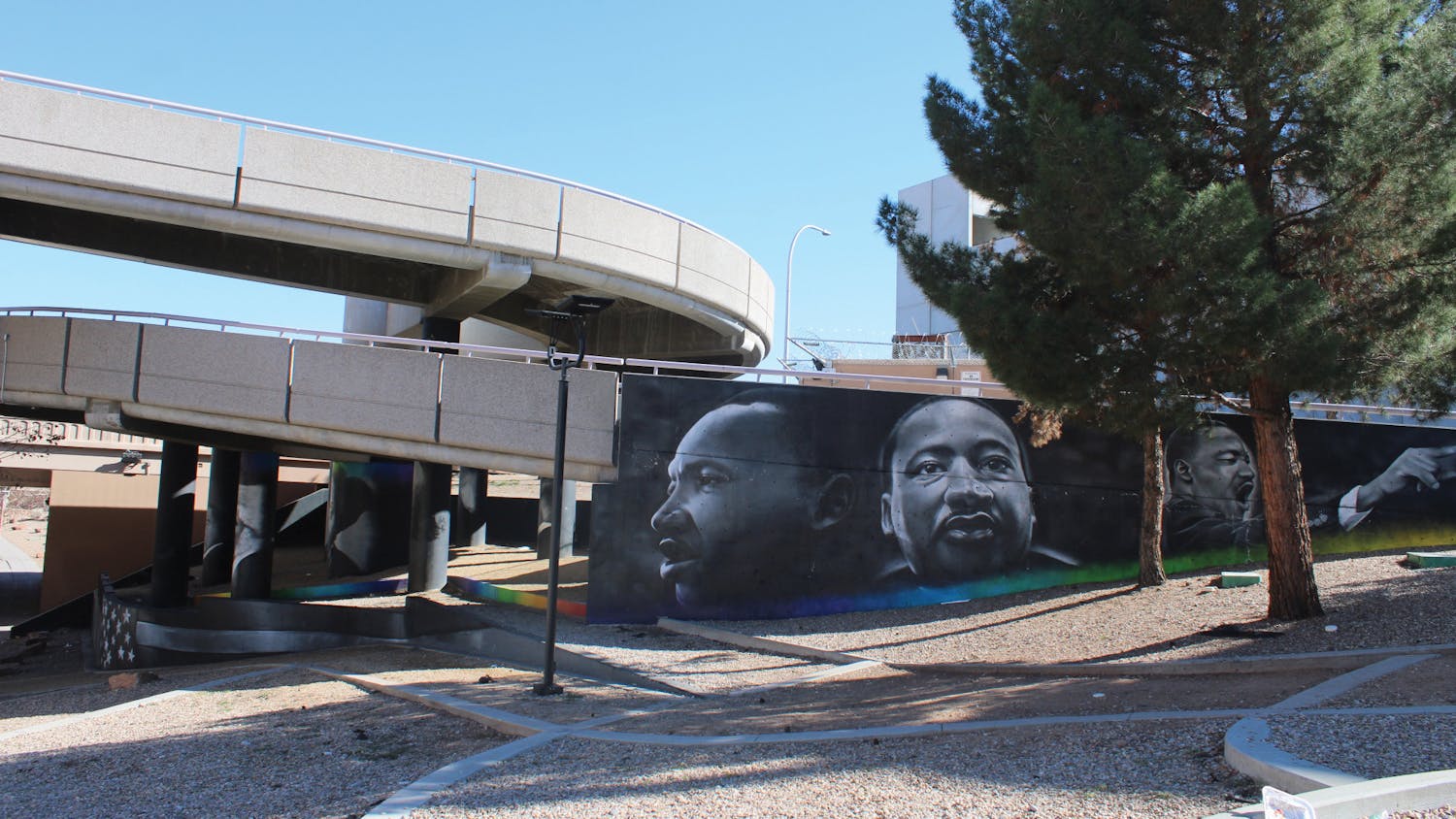In honor of Hispanic Heritage Month, Cell Mentor, a science-centered publication, released “100 inspiring Hispanic/Latinx scientists in America,” a blog post showcasing influential Hispanic/Latinx scientists around the nation, which included three University of New Mexico faculty members.
The list includes Dr. Margaret Werner-Washburne, Dr. C. Fernando Valenzuela and Dr. Gabriel López along with UNM alumni Anita Quintana, Pamela Padilla and Jacqueline De Lora.
“The goal of our list was to highlight the accomplishments of inspiring Hispanic/Latinx scientists, to bring awareness of the exceptional scientists within our community,” Christina Termini, the author of the list, said.
Termini said these scientists were selected based on nominations as well as evaluations from a group of selected scientists. Qualifications were “based upon scientific achievements, mentoring/educational excellence and most importantly, demonstration of commitment to advancing trainees from diverse backgrounds.”
Valenzuela, a professor in the department of neuroscience, said one of his most important goals is to continue training the next generation of doctors around New Mexico, where there is a shortage of physicians in rural areas.
As an immigrant from Latin America, Valenzuela often felt like an outsider in his field. This created imposter syndrome, which is internalized self-doubt. Valenzuela said his experience with imposter syndrome is something that allows him to establish better connections with his trainees.
Valenzuela stressed the impact of his cultural identities on his personal life.
“(My cultural identity has) been very important. I come from a troubled part of the world. When I was going to medical school in Colombia, it was in the peak of the war with drugs … So I lived through all of those nightmares that you see on Netflix and TV shows,” Valenzuela said. “That taught me how much it’s important to stay positive and always remember it’s possible to achieve your goals, even in the most difficult circumstances like we’re going through right now.”
López, a professor of chemical and biological engineering and a vice president of research, said his Indian/Mexican/Spanish background, as well as rural past, had an influence in his career and connected him with biology and technology.
“My work has been primarily in bioengineering of materials and devices to address environmental and medical problems, especially those that disproportionately affect communities of color,” López said. “In this sense, I see a direct link with my cultural identity and the technical focus of my work.”
In regards to empowerment through cultural identity in his field, López said “My own identity as Indian/Mexican/Spanish made me comfortable and proud within the collective Chicano identity. The presence of many extremely hard working folks and intellectuals in my life from early in life instilled into me that my culture did not lack in talent, nor drive. I feel this is a significant source of empowerment when dealing with the dominant majorities in academia.”
Because López grew up during the Chicano advocacy for human, property and environmental rights era, his heritage has influenced his views in his life.
Get content from The Daily Lobo delivered to your inbox
“(Hispanic Heritage Month) has never meant much to me. I grew up understanding that the word Hispanic was a catch-all phrase implemented by the U.S. government to characterize an incredibly vast diversity of citizens,” López said. “Having said this, reflecting a bit, for me I guess it is nice that (Latinos/Latinas) are recognized as an important part of the U.S. citizenry.”
López said his work has particularly impacted students from underrepresented groups in sciences and engineering.
Werner-Washburne, a regents professor emerita in biology, said her work at UNM is also centered around utilizing a network for her students. She created stemboomerang.org specifically to help former students that have moved out of state to find their way back to New Mexico.
“When I came to UNM, I didn’t come for the faculty, and I didn’t come for the school. When I saw the students, I just went, ‘I have to be here,’” Werner-Washburne said. “It was really the students, and I was always glad through my whole career that that was the reason I went to UNM.”
Valenzuela said UNM was an obvious choice as a place to teach due to its diversity, strong support for students and good research programs.
“It was definitely a fantastic place for (my wife and me) to come and work at, so we really didn’t have to think twice before choosing to come here,” Valenzuela said.
López said his work in research is hand-in-hand with students as well as professional peers.
“An important impact has been in teaching these students how research addressing important societal problems is done, how it is disseminated and how STEM can be a fulfilling career choice,” López said.
López’s advice to UNM students in STEM, especially those who identify as Hispanic/Latinx, was to “work hard, but with appropriate personal priorities: Do your best to follow the tried and true scientific/engineering method, work at writing well, practice your presentation to feel satisfaction in your performance and finally, take pride in the tremendous accomplishments of your cultural siblings both in and outside of STEM.”
Valenzuela encouraged students to be persistent and not give up.
Valenzuela said students studying STEM shouldn’t “let anyone discourage you from achieving your goals. Always look for support and mentors, role models that can show you how things could be done. And be connected with your community. If you are a Hispanic/Latinx student, take advantage of the wonderful resources that UNM offers, El Centro de La Raza for example.”
Werner-Washburne explained four principles she cultivated for her mentoring program that could help UNM STEM students, which included understanding what makes you happy, looking for positives, embracing yourself and expressing gratitude.
“If you’re doing that you’ll be happy, because you’re on a path that feels natural to you. As a result, you will be more creative and the world desperately needs all of you guys,” Werner-Washburne said.
Jasmine Casillas is a freelance reporter at the Daily Lobo. She can be contacted at culture@dailylobo.com or on Twitter @jaycasillas








